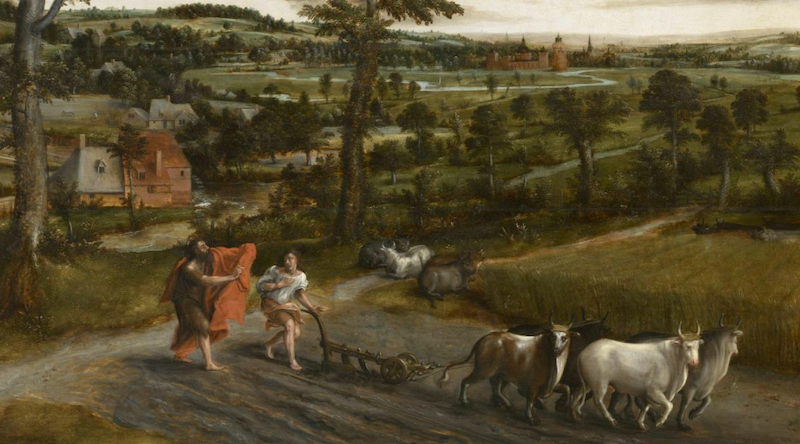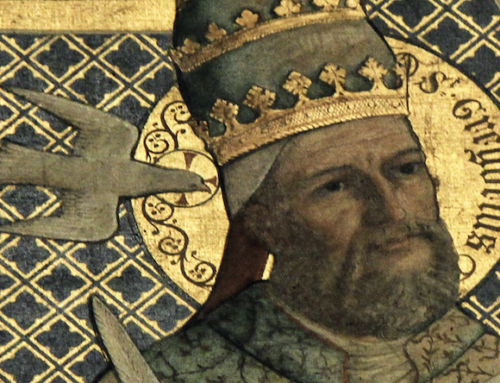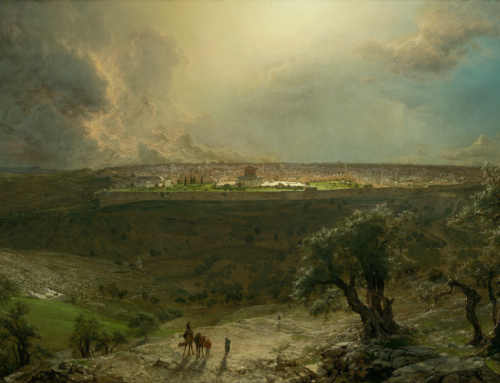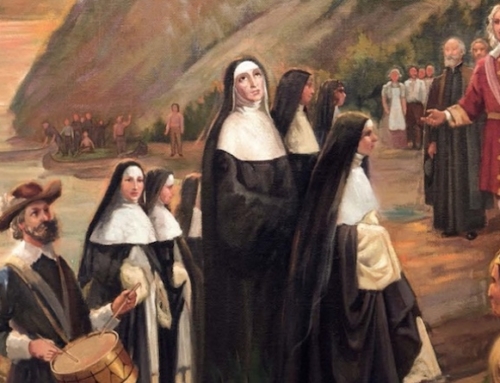This is part of a series on American Catholic authors. Read the series introduction here.
Where are our prophets—those strange men, fed on locusts and honey, called away from society to speak on behalf of God? These signs of contradiction are sent in seasons of complacency, and ours is a time in need of revival. As prophets seem to be in short supply, Walker Percy suggested we settle for the novelist (“Notes from a Novel About the End of the World”). The novelist is not quite a prophet, yet with tongue unpurified and commissioned only by conviction, he shares his enthralling vision of a broken world. But it’s the Catholic novelist who gazes on a broken world and sees Christ’s saving hand at work, and thereby reminds his readers of their present state, and prepares them for something more.
Percy was an unlikely candidate for a Catholic novelist. He was born in 1916 in Alabama, into the non-Catholic, Christ-haunted Southern gentry. He was trained as a physician, specializing in what he termed “the science of disease,” abstracted from the realities of treatment and care. His conversion began surrounded by despair and death. While working long hours at Bellevue Hospital, Percy contracted Tuberculosis. The incurable disease was more than a sickness—it was a new state of existence. Without a cure, Percy was prescribed isolation and time. Percy’s isolation sent him wandering in a desert of despair, searching for meaning in a world of suffering.
While convalescing in a TB cottage, Percy began his search by reading voraciously. What captured his imagination was the philosophy of the Existentialist movement, with its darkened, sideways view of a world in despair—a world of limitation and loneliness, devoid of meaning. The Existentialists offered a compelling solution to our despair: acceptance. For Percy, despair was only the beginning, it was an awakening to deeper social ills.
The Existentialists identified man’s symptoms of despair and alienation, but failed to diagnose his underlying condition. With his physician’s intuition, Percy saw human angst as the disordering of a creature created healthy. Man has shifted his gaze from the creator to the self, leaving him restless—if there is such a thing as happiness, it is to be found here below. Percy’s conversion to the faith corresponded to a literary conversion to the faith; Percy saw that humanity’s sickness had a cure, but that it needed prophets before it was ready for the physician.
The Gospel is the Good News, yet the prophets rarely have anything good to say. Jonah journeyed three days through Nineveh preaching repentance (cf. Jonah 3), and Jeremiah warned God’s people of their forthcoming captivity (Jer 21). Percy prepares a wayward people for the Lord, proclaiming our deeper captivity to sin and death. “The novelist,” says Percy, “is one of the few remaining witnesses to the doctrine of original sin” (“Notes from a Novel About the End of the World”). His task is not to edify, but to purify, by plunging us into the reality of man’s need for redemption. Percy’s prophetic message that things are not well is somewhat anticlimactic, a diagnosis of which we are well aware. Yet hidden within Percy’s six novels are the subtle hints at a cure.
Percy’s most acclaimed novel, The Moviegoer, follows the follies of Binx Bolling, a middle-class bachelor and fallen away Catholic as he seeks meaning and happiness in a world seemingly devoid of either. Binx is in the middle of “The Search,” a quest to find meaning—“what anyone would undertake if he weren’t sunk in the everydayness of his own life” (The Moviegoer). Binx’s Search passes through cars, movies, lovely secretaries—each promising to provide an answer. At the end of each leg of The Search, Binx is enveloped in what he terms “The Malaise,” a pervading sense of despair at the dissatisfaction of passing comfort. Borrowing from his own experiences, and those of countless converts before him, Percy presents a man haunted by a Holy Despair, a longing for what he can’t quite name.
Percy’s characters are comfortable but without rest, tranquilized but never tranquil. Percy calls our attention to an age taught to habitually ignore its discontent. Binx finds his neighbors’ lives filled with dull comfort, living in “[a] City of Man so pleasant [that] the City of God must hold little in store for them” (The Moviegoer). Life’s comforts manage symptoms but fail to treat our underlying alienation. Left untreated, Binx’s vicious cycle admits no true happiness, nor false happiness, but the dull acceptance that happiness is not possible. Our inherited illness has turned us inward, seeking self-made happiness on our own terms. As a true pilgrim, Binx’s Search gradually draws him out of himself, ironically through the very despair he derides. It is his awareness that self-made happiness is fleeting that sends him searching for a place of rest and a world redeemed.
Southern literature typically seeks a return to a sense of place, moving past oneself to one’s roots. In contrast, Percy’s characters reside in a distinct “non-place.” Percy’s mentor, Caroline Gordon, was somewhat critical of Percy’s style, emphasizing that redemption occurs in the particulars of a created reality. God became man in a place, but Percy saw that fallen man had made place into an idol. The life we create for ourselves, in the place we choose for ourselves, is prompted by a misdirected sense of eternity. As our curated communities begin to crack, The Malaise manifests itself as a sense of placelessness. Failing to create our reality, we are prompted by The Malaise to continue our Search. Our aimlessness should be no surprise: the Christian knows his true home is heaven, and therefore feels, to some degree, a stranger in every society (“Notes from a Novel About the End of the World”). We are pilgrims and wayfarers—restless, but with a destination. The Malaise prompts the Search by reminding us that we are still on our way.
Percy’s Catholic literature uses our despair and homelessness as signposts in the wilderness, guiding us home. He proposes a search, a journey through the ten thousand comforts that promise to save us from ourselves. His quasi-prophetic message prepares us for peace, but not as the world gives it (John 14:27). Our peace will not come through an idea or even a prophetic message, but through a person—not a sign of Christ, not an idea of Christ, but the flesh and blood of the Word of God. Percy’s words do not promise to save us or heal us, but simply to prepare us for the hand of the Divine Physician.
✠
Image: Jan Massijs, The Calling of Elisha







